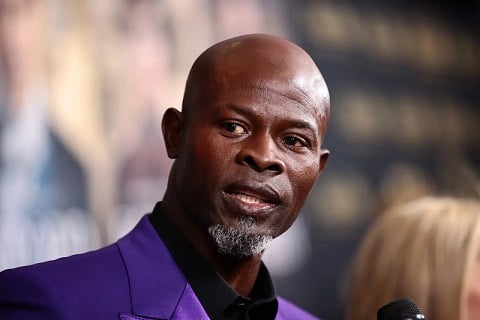Djimon Hounsou, a Beninese-American actor with a distinguished career spanning over two decades, has recently shed light on the stark reality of his financial struggles despite his significant contributions to the film industry. His filmography boasts critically acclaimed performances in blockbuster movies such as “Gladiator,” “Blood Diamond,” “Amistad,” and appearances in popular franchises like “Guardians of the Galaxy,” “Aquaman,” and “Fast & Furious.” Despite this impressive resume, which includes two Academy Award nominations, Hounsou revealed in a candid interview with CNN’s African Voices Changemakers that he is still grappling with financial instability, a situation he attributes to systemic underpayment in Hollywood. His confession exposes the deeply ingrained inequities that persist within the entertainment industry, particularly for actors of color.
Hounsou’s assertion of being “definitely underpaid” underscores a pervasive issue of unequal compensation based on race. He has dedicated years to his craft, honing his acting skills and delivering powerful performances that have resonated with audiences worldwide. Yet, his financial struggles stand in stark contrast to the immense success and profitability of the films he has been a part of. This disparity highlights a systemic problem where actors of color, despite their talent and contributions, are often undervalued and undercompensated compared to their white counterparts. His experience serves as a potent reminder that recognition and critical acclaim do not automatically translate into fair and equitable financial reward, especially for marginalized artists navigating a system fraught with bias.
Adding another layer to his experience, Hounsou candidly recounts instances of perceived racial bias that have impacted his career trajectory. He shared an anecdote about being overlooked for an Oscar nomination despite receiving a Golden Globe nomination, suggesting that the Academy’s decision was rooted in prejudiced assumptions about his background and experience. The perception, as he describes it, was that he was a newcomer, fresh “off the boat and the streets,” unworthy of the same recognition and respect afforded to established actors. This incident underscores the subtle yet powerful ways in which racial bias can manifest in Hollywood, influencing casting decisions, award nominations, and ultimately, an actor’s perceived value and earning potential.
Hounsou’s experiences paint a troubling picture of an industry grappling with systemic racism and struggling to achieve true diversity and inclusion. While there has been a growing discourse around representation and diversity in recent years, Hounsou argues that these are merely conceptual ideas that have yet to translate into meaningful change. He emphasizes the deeply entrenched nature of systemic racism, suggesting that superficial changes and performative allyship are insufficient to dismantle the long-standing structures that perpetuate inequality. His perspective highlights the need for substantive action and systemic reform to address the root causes of racial bias and create a truly equitable playing field for actors of color.
The actor’s willingness to share his personal struggles underscores the importance of amplifying the voices of marginalized artists and holding the industry accountable for its shortcomings. While Hollywood touts its commitment to diversity and inclusion, Hounsou’s story serves as a stark reminder that these efforts are often superficial and fail to address the underlying issues of systemic racism and unequal pay. His experiences resonate with the broader conversations about racial equity and representation in various industries, highlighting the need for greater transparency, accountability, and genuine commitment to creating a more inclusive and equitable environment.
Djimon Hounsou’s story is not just about individual hardship; it serves as a microcosm of the larger systemic issues plaguing Hollywood and the broader entertainment industry. His candid revelations about financial struggles, despite a successful and prolific career, expose the persistent inequities faced by actors of color. By sharing his experiences, Hounsou contributes to a crucial dialogue about racial bias, unequal pay, and the need for meaningful change. His story serves as a call to action, urging the industry to move beyond performative allyship and embrace substantive reforms that create a truly inclusive and equitable environment where talent is recognized and rewarded, regardless of race.


